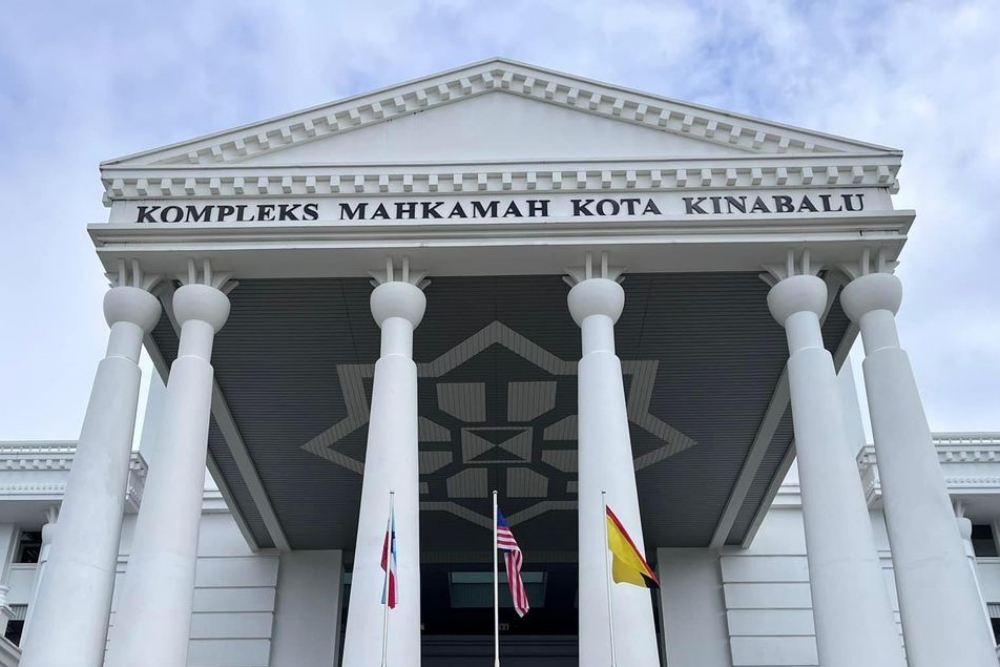ADVERTISE HERE

ABM and FINCO champion English proficiency and financial literacy from an early age.
KUCHING (Oct 28): The Association of Banks in Malaysia (ABM) and its member banks continue to play a crucial role in supporting Malaysians.
Since its inception, ABM, in close collaboration with member banks, has worked to make banking accessible to all, focusing on underserved populations, including the B40 community, persons with disabilities (PWD), and small and medium enterprises (SMEs).
The expansion of agent banking networks in rural areas, especially in Sarawak, highlights ABM’s and the banks’ commitment to enhancing financial access in underserved regions, addressing geographical challenges, and promoting financial inclusion.
As a representation of the country’s 26 commercial banks, ABM has played a pivotal role in shaping Malaysia’s financial landscape for the last 50 years.
Its mission is to promote a resilient and efficient banking industry, providing support to both consumers and businesses through initiatives that enhance banking practices, ensure online safety, assist customers facing financial difficulties, and give back to the communities they serve.
ABM member banks have consistently demonstrated their commitment to supporting SMEs, the backbone of the Malaysian economy, which contributes nearly 40 per cent to the nation’s gross domestic product (GDP) each year.
As of end-July 2024, the outstanding financing for SMEs stood at RM401.8 billion, further establishing ABM’s support for economic growth across Malaysia.
ABM’s member banks have been instrumental in financing major national infrastructure projects, providing over RM150 billion in support and contributing to the development of sectors such as transportation, energy, and healthcare.
In Sarawak, projects include initiatives under the Sarawak Corridor of Renewable Energy (SCORE), which received financial backing, boosting connectivity and industrial growth.
During economic challenges, such as the Asian Financial Crisis and the COVID-19 pandemic, ABM member banks provided loan moratoriums and financial repayment assistance, helping to stabilise Malaysia’s economy and protect employment.
ABM champions financial literacy from an early age through initiatives like the Financial Industry Collective Outreach (FINCO), reaching over 930,000 students nationwide.
In East Malaysia alone, FINCO has impacted more than 6,500 students, while around 120 teachers were trained in 2024 to further promote financial literacy, English proficiency, as well as career guidance and mentoring.
ABM also prioritises consumer protection, and has collaborated on initiatives like the National Fraud Portal and National Scam Response Centre to enhance online fraud detection. Partnerships with stakeholders, including NGOs like Leadwomen and government agencies like TalentCorp, support ABM’s commitment to diversity, inclusivity, and talent development within the banking sector.
Leading the path to sustainability
ABM’s active participation in the Joint Committee on Climate Change (JC3), partnering with Bank Negara Malaysia and the Securities Commission, addresses climate risks in the financial sector and supports a transition to sustainable finance through various initiatives.
ABM plays its part in inculcating economic resilience by ensuring the banking sector supports sustainable development and inclusivity. This includes SME financing, green finance, and long-term economic resilience initiatives.
ABM has taken significant strides in supporting Malaysia’s transition to a low-carbon economy by promoting sustainable finance. ABM member banks’ support of the sustainability agenda is evidenced by the issuance of ASEAN Sustainability Bonds and growth in their green loan portfolios, contributing to a greener and more resilient economy.
As ABM’s role in steering the banking sector toward sustainable practices grows, it addresses challenges such as slow adoption and the need for greater expertise in ESG integration. To support this, ABM advocates for green financing, capacity building, and creates platforms for banks to share best practices.
ABM, alongside the Association of Islamic Banking and Financial Institutions Malaysia (AIBIM) and the UN Global Compact Network Malaysia & Brunei, will engage with SMEs to provide training and capacity building related to sustainability and support the next generation of leaders in championing sustainable development.
Its Malaysian Banking Conference (MBC), co-organised with the Asian Institute of Chartered Bankers (AICB), is its flagship programme focused on sustainability from 2022.
This conference gathers industry leaders and experts to share insights on ESG strategies and standards.
The most recent edition, MBC 2024, was attended by over 600 delegates from local and international financial institutions, underscoring ABM’s dedication to transparency and climate risk management in the financial sector.
Financial inclusion in East Malaysia
ABM has also made significant strides in fostering financial inclusion and development in East Malaysia. Through various initiatives, the association has worked to ensure that the banking needs of communities in Sabah and Sarawak are met, focusing on expanding access to financial services in rural areas.
By collaborating with local stakeholders, ABM has facilitated sustainable economic growth in these regions while empowering local SMEs and underserved populations.
This commitment further underscores ABM’s dedication to ensuring that no Malaysian is left behind in the nation’s financial journey. ABM member banks have also made financial services accessible through the agent banking network and digital banking platforms.
ABM’s five-decade legacy is marked by trust, resilience, and a commitment to inclusivity and sustainability. As it looks toward the future, ABM remains focused on addressing emerging challenges, driving innovation, and ensuring that Malaysia’s banking sector continues to support socio-economic progress across all communities.








 English (US) ·
English (US) ·